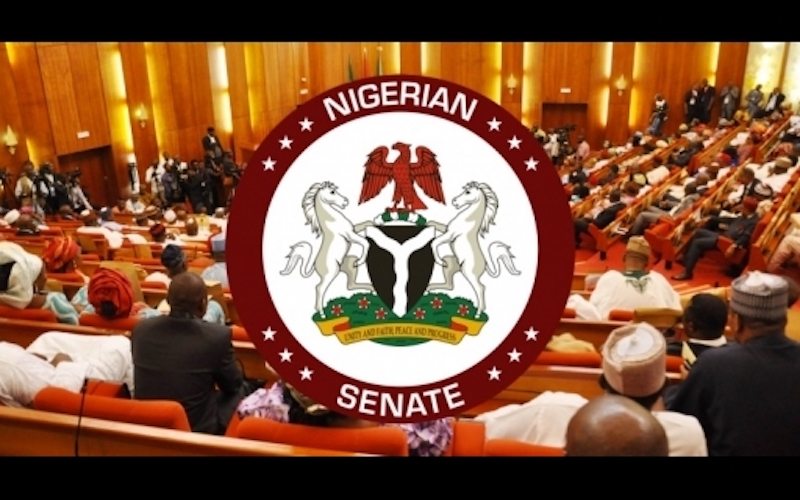
The Senate has said a genuine partnership between the executive and legislature would end Nigeria’s economic woes.
The Chairman, Senate Committee on Finance, Senator Sani Musa, who stated this yesterday, amid preparations by the Senate to engage heads of federal ministries, epartments and agencies, MDAs, on the 2024 budget, said such partnership could produce the requisite fiscal policy essential not only to stabilize the economy, but also stimulate growth and revenue generation.
Musa, who chairs the joint Senate committee, saddled with the responsibility of deliberating on the 2024-2026 Medium Term Expenditure Framework and Fiscal Strategy Paper, MTEF-FSP, said: ” In this endeavour, I call for unity and cooperation between the legislative and executive branches.
“It is only through collaboration and consensus-building that we can develop fiscal policies that are robust, equitable and conducive to sustainable economic growth.
“The challenges ahead are formidable, but our resolve is stronger. The MTEF/FSP 2024 — 2026 is not merely a collection of numbers and projections but a comprehensive strategy designed to steer our nation through the complex economic landscape that lies ahead.
“The document outlines projected revenue and expenditure expectations, fiscal policies, and macroeconomic assumptions, thereby laying the foundation for our budgetary decisions and shaping the economic trajectory of our great nafion.
“Therefore, it is our duty not only to scrutinize but also to ensure that the MTEF/FSP 2024-2026 aligns with the best interest of Nigerians whom we are all representing.
“It is vital to acknowledge the complex and challenging economic situation. In the light of this administration, this is the first MTEF/FSP to be considered at a time the economy is facing various economic hurdles.
“These include, fluctuating global oil prices, inflationary pressures, unemployment, general economic hardship partly attributed to fuel subsidy removal which has led to labour unrest and agitation for higher minimum wage.
“It is in these challenging times that the need to increase our revenue sources especially from the non oil sector is paramount, while blocking leakages in the already existing revenue sources.
“Let us strive to reduce the deficit, effectively manage our debt, boost domestic revenue, invest in critical infrastructure, and promote job creation.
“Our role as legislators in shaping the MTEF/FSP is not only a constitutional obligation but a moral imperative to our constituents who look to us for guidance and leadership in safeguarding their economic interests.
“We must engage in thorough and unbiased deliberations, focusing on the welfare of the Nigerian people. I urge each esteemed member to lend their expertise, insight, and untiring commitment towards its thorough review and subsequent implementation.
“It is only through collective wisdom and concerted effort that we can fine-tune the economic machinery of our nation, driving it towards prosperity and inclusive growth. Our duty is not merely to pass a framework; it is to shape the economic destiny of our nation for generations to come.
“The committee on finance in the 9th Assembly has begun an investigative hearing on the remittances of all revenue generating agencies of government to the consolidated revenue for the federation, CRF, as well as payment of the 1% stamp duty on all contracts executed in all MDAs.
“I assure you that the committee in the 10th Assembly will continue with the investigation targeted at blocking revenue leakages, curtailing frivolous expenditures by MDAs, as well as boosting revenues of the government in the face of dwindling revenues from traditional revenue source of crude oil.”
Membership of the joint committee is drawn from Senate committees on finance, appropriations; national planning and economic affairs; and local and foreign debts.
The Federal Government in the 2024-2027 MTEF/FSP, pegged the price of crude oil at $73.96; exchange rate at N700/$; oil production at 1.78 million barrels per day; debt service of N8.25 trillion; inflation at 21 per cent and GDP growth at 3.76 per cent.
The aggregate expenditure was estimated at N26.01 trillion for the 2024 budget which includes statutory transfers of N1.3trn, non-debt recurrent expenditure of N10.26 trillion, debt service estimated at N8.25 trillion, as well as N7.78 trillion being provided for personnel and pension cost. When approved, the MTEF/FSP would set out the parameters upon which the 2024 budget would be predicated.
https://www.vanguardngr.com/2023/11/2024-budget-how-to-end-nigerias-economic-woes-senate-2









